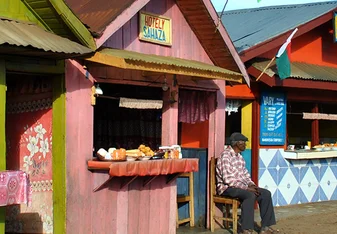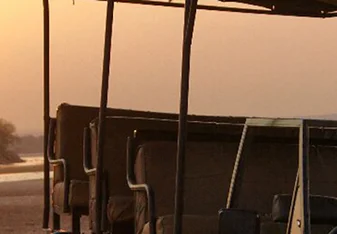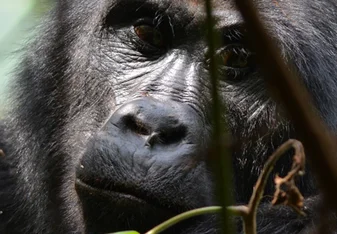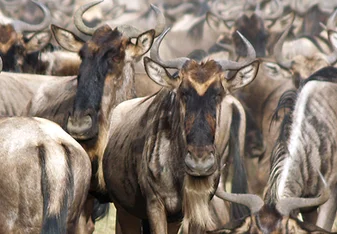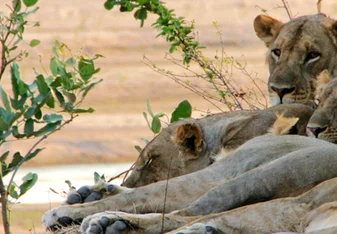Volunteer in Uganda
About
For a country the size of Oregon, Uganda is surprisingly diverse. Looking in any direction from the dense bush of the central region you will find great differences in the geography; from the vast, arid savannas of the north to the cooler mountains and forests of the southwest, Uganda offers a staggering range of experiences: volunteers have the opportunity to whitewater raft the Nile, go on safari to see lions, giraffes and elephants, and relax on the sandy shores of the Ssesse Islands in Lake Victoria, the third largest freshwater lake in the world.
The people of Uganda are equally as diverse. They are divided into more than 11 ethnic groups and speak over 40 different languages. What all Ugandans share, luckily, is a penchant for socialization, placing them amongst the happiest, most welcoming people on the planet, and placing Uganda amongst the most idyllic places to volunteer. But happiness comes at a price: Uganda has been riddled with guerrilla warfare, human rights violations, corruption and inflation since its independence in 1962. Volunteers will find opportunities to help in many different sectors in all areas of the country.
Program Types
Education/Youth Development
With 50% of the population under the age of 15, volunteers can work with children in any part of Uganda. Orphanages are often religiously affiliated (84% of Uganda are equally divided between the Catholic and Protestant faiths), while primary and secondary schools are government sponsored and always needing help in attaining the goal of universal education. Plenty of NGOs work outside of schools as well, teaching kids life skills, entrepreneurship, and sexual education.
Health
Uganda has been among the rare HIV success stories in Africa. In the 1980s, more than 30% of Ugandan residents had HIV; by 2009 rates had fallen to 6.5% (United Nations). However, this level is still unacceptable, as are the conditions in health centers and hospitals throughout the country. Volunteers with and without formal medical training can help provide basic health care and education to communities, especially in rural areas. Those studying medicine or nursing can easily volunteer in a handful of large hospitals, called Health Center Fives. A vast number of privately funded clinics are also available.
Community/Economic Development
Ugandans are very entrepreneurial, a quality that is easily linked with their love for community, making co-ops an ideal business method. Volunteers with business and economic backgrounds can help in the hundreds of microfinance NGOs or on a larger scale with the exportation of Uganda’s multitude of resources: sugar, coffee, tobacco, tea, cotton textiles, cement, steel, copper, cobalt, limestone and salt.
Agriculture and Water Sanitation
Agriculture composes 80% of the Ugandan workforce. These people are subsistence farmers. Improved farming methods, as well as irrigation, food preservation, water sanitation and animal husbandry are areas in which volunteers can make an impact.
Environmental Conservation
Uganda is blessed with natural resources and natural beauty. Its National Parks need to be protected from poaching. Citizens need to be educated on the dangers of deforestation and the importance of alternative fuel and reforestation; the National Environmental Management Authority states that “if deforestation continues at the present rate, Uganda will have lost all its forested land by 2050” (NEMA UG). Clean up after natural disasters, such as mudslides and droughts, is critical as well.
Gender Equality
Women in Uganda are viewed as second-class citizens, to be bought and sold by men through marriage. Women’s empowerment, as well as gay rights activism, are politically charged and presently quite tense, but in need of activism nonetheless.
Planning Your Trip
Volunteering Tips
Volunteer Support: NGOs have an established presence in Uganda. They may offer you support in the form of housing, meals, transportation, and medical support. For additional support, contact your country’s embassy in Kampala. Ugandans themselves can be supportive, as well. For help with shopping and bargaining, household chores, religious activities, and entertainment, your best option is befriending locals!
NGOs/Nonprofit/Volunteer History in Uganda: Uganda is rife with both foreign and local NGOs. American and European NGOs are common, as are grass-roots Uganda groups that provide community support. Any and all of these posts would gladly accept volunteer assistance, as to many health centers, schools, orphanages and conservation authorities. For a list of registered NGOs in Uganda, please visit the Ugandan national Forum.
Know Before You Go: Internet cafes can be found in major cities, along with a post office. P.O. Boxes are available at all post offices. The mailing system is somewhat reliable but very slow: letters take anywhere from 2-4 weeks to arrive while packages take three weeks to three months. Cell phones are fairly cheap and very convenient to have. They cost as low as 65,000 UGX (about $25), but it’s recommended that you buy a new phone versus a used one, as used ones often do not work! The weather changes about every three months in Uganda, from dry to rainy, but temperature rarely drops below 60 degrees Fahrenheit. Public transport is inexpensive and averages 5,000UGX for every 50 kms.
How Volunteering in Uganda Will Help Your Future: The experience you gain in Uganda will be unparalleled. Not only will you take home new skills, but you will have an understanding of how a different culture operates. You may not realize it at the time, but volunteering in Uganda will teach you tenacity, flexibility and independence as you’ve never seen them before!
How to Save Money While Volunteering: It is easy to save money while volunteering in Uganda. Housing and meals can be covered with a pittance, if you accept the rudimentary standards and local cuisine and traditions. Frequent trips to bigger cities, expensive foreign meals and luxuries, and private transportation will be drains on your pocketbook. Enjoy the adventure and live like a Ugandan!
Best Places to Volunteer: Kampala (the capital), Jinja, Gulu, Masaka, Mbarara, Mbale, and Arua. Many NGOs, such as Mango Tree and World Vision, have headquarters in Kampala, from which you can be placed in a more rural location. Be wary of local community-based organizations (CBOs) that require you to pay money up front.
Questions to Ask: What amenities will be available (running water, electricity, cook stove)? Is it rainy or dry season when I am arriving? What type of transportation will be available to me and for how much? How far will I be from the capital/airport? Are there other foreign volunteers where I am going? What will the average working day be like?
Health and Safety of Volunteers in Uganda
Health: No vaccinations are required for entry into Uganda, unless you are arriving from a yellow-fever-infected country in Africa or the Americas. However, volunteers are encouraged to be up-to-date on their childhood immunizations (MMR, Hepatitis A & B, Polio), along with receiving vaccinations for typhoid, yellow fever, rabies and tetanus. Volunteers will also need to take a malaria prophylaxis during and after their stay in Uganda. Tap water should be avoided in all circumstances, as traveler’s diarrhea is a legitimate threat; come prepared with anti-diarrheal medicine. Volunteers should also steer clear of stagnant bodies of water, due to the risk of contracting schistosomiasis. For more information, please visit MD Travel Health.
Safety Concerns: As with many countries around the world, the biggest safety concerns are theft and reckless driving. Keep money and valuables hidden in different locations on your person. A heavy padlock is necessary for your home or bedroom door. Even though a volunteer’s desire for physical activity may become overbearing, running on the roads is not recommended. Pedestrians rarely have the right-of-way, and motorcycles (bodas), cars, busses and trucks compete to overtake each other. If you are taking public transportation, do not be afraid to demand that the driver slow down! Travel in groups when possible and avoid being out after dark.
Visas for Volunteering in Uganda
A single-entry tourist visa, valid for three months from the date of arrival, can be obtained at airport immigration for US $50. For US $100, a multiple-entry visa can be obtained, valid for six months from the date of arrival. Work visas and temporary East African residency can also be obtained through the Ugandan Embassy in your home country. For more information, please visit VISA HQ.
Contributed by Renee Vuillaume
Volunteer Programs in Uganda
Pagination
Frequently Asked Questions
-
Where can I volunteer in Africa?
The top 10 countries to volunteer in Africa are Tanzania, South Africa, Ghana, Uganda, Madagascar, Kenya, Namibia, Zimbabwe, Malawi, and Mozambique. However, you can find volunteer opportunities in over 25+ African countries on Go Overseas.
-
Why volunteer in Africa?
There are many reasons to volunteer in Africa: to make a positive impact, to help protect wildlife, to have the opportunity to travel around beautiful countries before or after your volunteer trip, to experience rich and welcoming cultures different than your own, to enjoy a slower lifestyle, and to stand out during a future job search. Africa has a lot of diverse volunteer opportunities in various industries.















